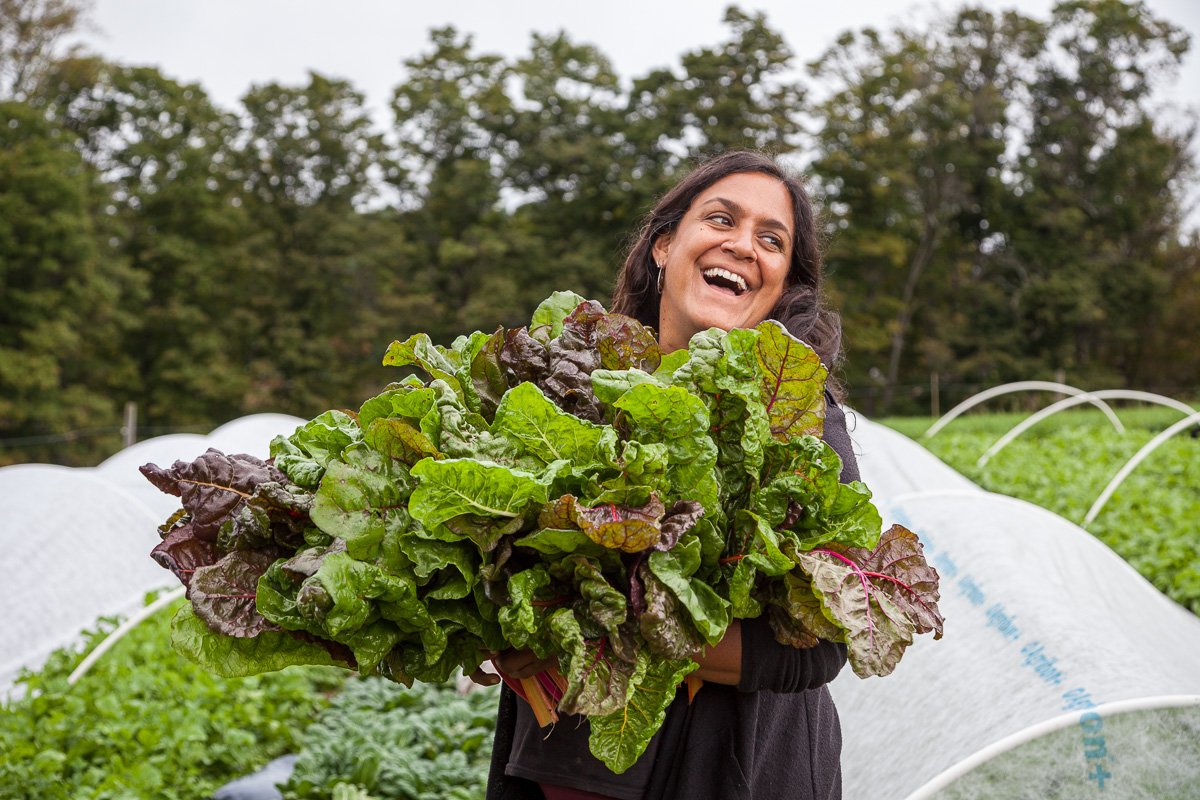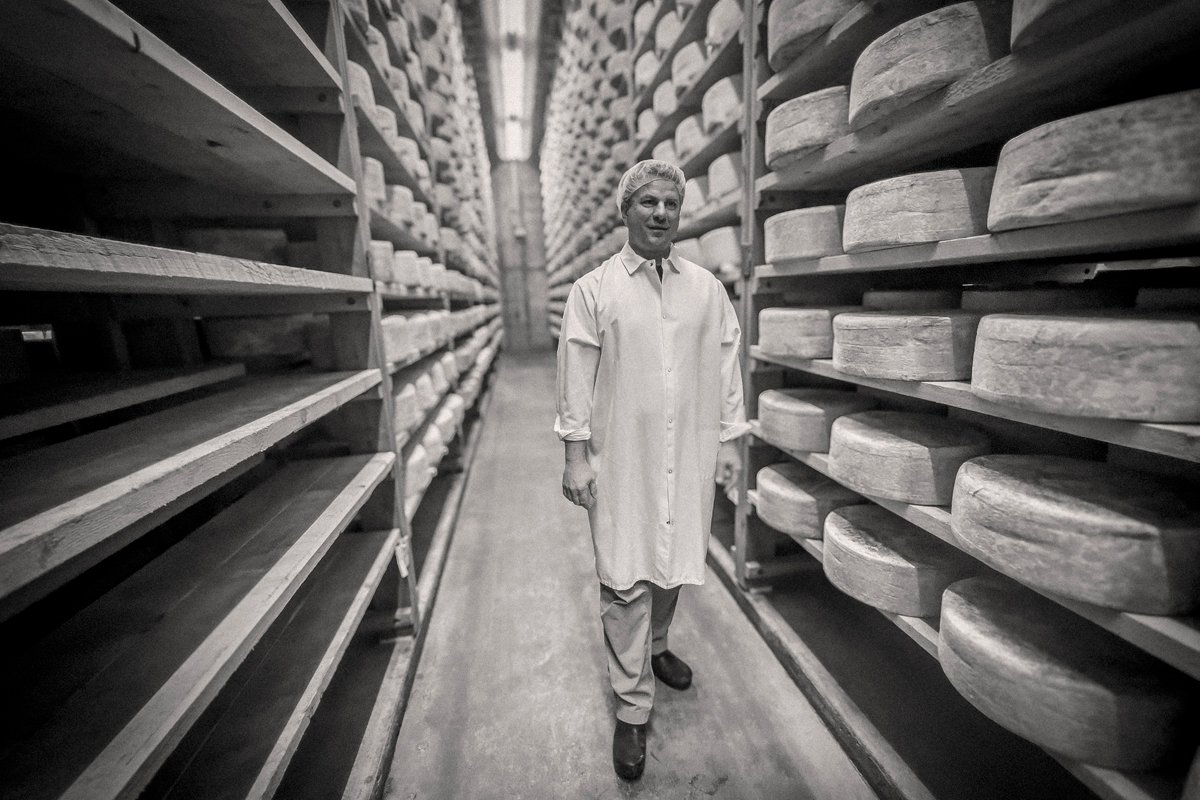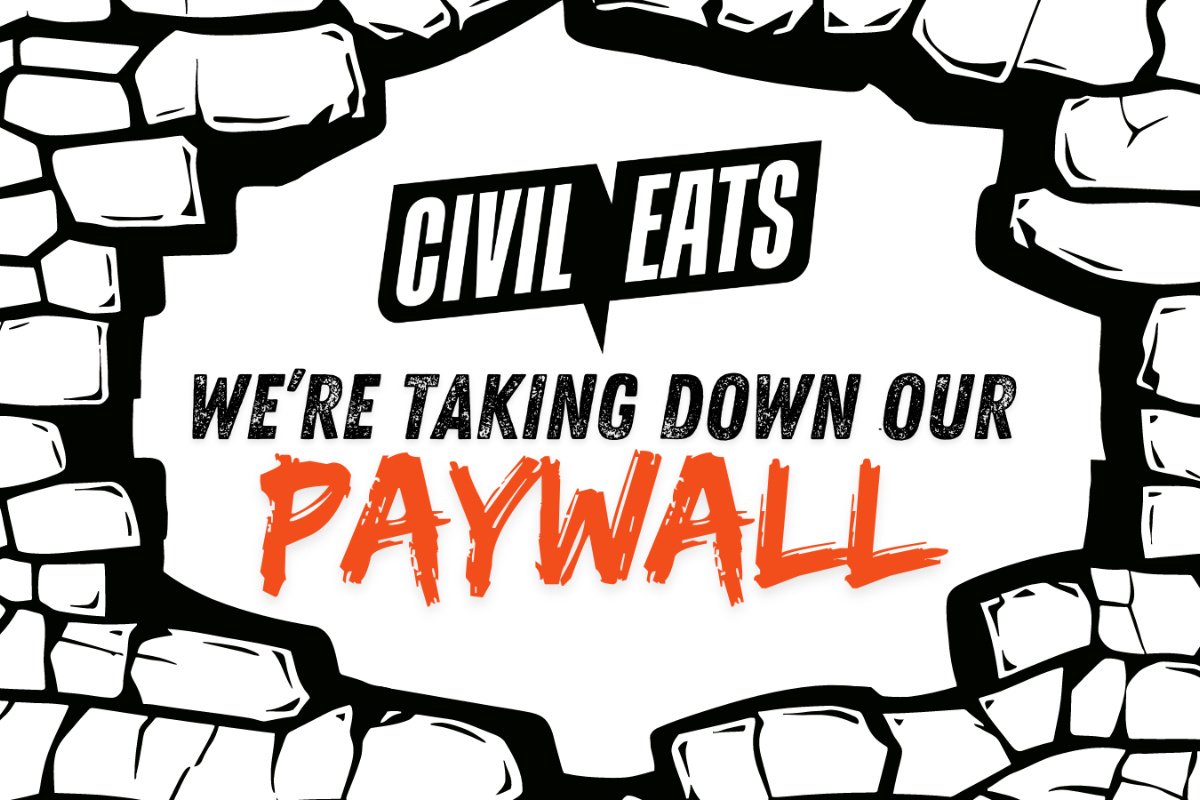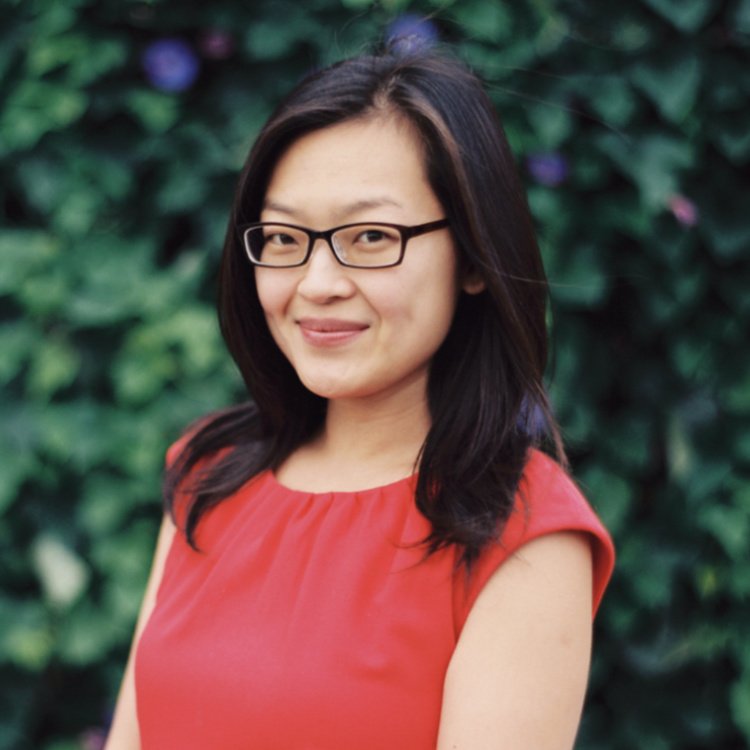In the Berkshire Mountains, Jen and Pete Salinetti’s regenerative farm practices and commitment to community have them well-positioned for this moment.

In the Berkshire Mountains, Jen and Pete Salinetti’s regenerative farm practices and commitment to community have them well-positioned for this moment.
August 12, 2020

The first community supported agriculture (CSA) pickup of the 2020 summer season at Woven Roots Farm in Tyringham, Massachusetts, was a joyous event. Pickup procedures were different, to be sure: masks and physical distancing were required, and only one person was allowed from each household at a time.
Yet the farm felt safe and welcoming, and everyone wanted to talk with farmer Jen Salinetti after so much time quarantined at home. People were “like moths to the flame,” says farm manager Matt Boudreau. “They had a lot of pent-up conversations in them.”

First CSA pickup of the 2020 season. (Photo by Alyssa Mack / LightFocusStudio.com; murals on the barn by Rebecca Patterson)
The open doors to the pickup spot had been painted with multiple value statements: “Black Lives Matter. No Human is Illegal. Love is Love. All Genders are Whole. Women’s Rights are Human Rights.”
These are sentiments that resonate deeply with Salinetti, a community vegetable grower and educator who started the farm with her husband, Pete, 20 years ago in the Berkshire Mountains in western Massachusetts. Jen is the outgoing face of the farm, the earth mother who welcomes all, while Pete tends to stay in the background.
Early on, the Salinettis were selling their produce to local restaurants, but they soon realized it wasn’t quite fulfilling them. “If we’re going to be growing food,” says Jen, “we want to grow it for the people—not just those who can afford a high-priced meal.” They made what she considers a moral shift away from restaurant sales and put more effort into growing their CSA service, which started with 10 members and increased to 80 before spiking to 200 this season.
Farming is an act of social and environmental justice for Jen, a stance the current COVID-19 crisis and protests over racial injustice have only confirmed. “As a person of color,” she says, “it is my responsibility to be speaking up and identifying ways that our current system has caused harm and disconnect, and offering skills to be able to reshape that.”
“If we’re going to be growing food, we want to grow it for the people—not just those who can afford a high-priced meal.”
Jen feels a total affirmation of the choices she and her husband have made, not only the decision to farm but also to make food affordable and be deeply involved with their community. In fact, she says, everything they have been creating for years places them in the perfect position to respond to people’s needs in this moment.
This year, Woven Roots has experienced a number of requests for financial assistance, and they are working with CSA members to ensure that income gaps are never a barrier to receiving food; if needed, they arrange a work or skill barter, a reduced-price “solidarity share,” or a payment plan. Jen is also deeply involved in educational programs that teach people how to grow their own food.
Jen was born in Colombia and grew up as a transracial adoptee in suburban New Jersey. As a child, she would sit on a little rock among the rhododendrons outside her parents’ house. “I remember feeling a fullness that was there,” she recalls. “I knew with certainty that there was something greater to be connected to. I didn’t know what it was, and I didn’t know it was food that would be the driving force.”
It wasn’t until she met Pete in college, where she was studying nutrition and agriculture, that the pieces started to come together.
Pete comes from a long line of gardeners; his great-grandfather immigrated to the U.S. from Italy with bean seeds in his pocket. Pete grew up in the Berkshires tending a large family garden with his father. When Jen first stepped into that garden and heard the story of the bean seeds, she immediately wanted to learn to grow those seeds, and she wanted to do it with Pete.

Pete and Jen Salinetti. (Photo by Alyssa Mack / LightFocusStudio.com; artwork by Rebecca Patterson)
Now, 20 years into farming, married with two children, the Salinettis have sharpened their focus on soil. Jen jokes that they are actually growing soil, and the vegetables are just a byproduct, but the couple manages to cultivate an abundance of produce in a very limited space.
On just under 1.5 acres, their small team grows more than 70 different crops using a biointensive, no-till method of regenerative farming that prioritizes soil health. Through intense study, observation, and trial and error, they’ve learned to maximize their yields—and on top of the 200 families they’re feeding through their CSA, they’re also selling produce wholesale to the local food co-op and natural food stores in the area.
To achieve a consistently high yield, they plant vegetables in permanent beds that are 50 feet long and 30 inches wide, with a 12-inch aisle between. They never till the soil, which would bring up old weed seeds and destroy the integrity of the soil structure. Instead, they aerate each of the 330 beds with a broad fork and gently incorporate compost into the top inch, relying on microorganisms and worms to take the nutrients deeper.
On a yearly basis, as the team adds organic matter to the top of the soil, the Salinettis say the weed seeds get pushed deeper and deeper, which is one reason the farm does not have a weed problem. When weeds do emerge, they manually remove them with a shuffle hoe before they reach an inch tall.

Tightly maintained rows of vegetables at Woven Roots. (Photo © Lise Metzger)
While the Salinettis plant the same family of crops in a given area, they constantly rotate them—and can turn over any given bed space as many as four times in a season. Once they harvest a crop, they move new plants into that space within a day. “Or else I won’t have enough food,” says Pete.
There is always something growing in each bed, even over the winter, and the team plants the breaks between the 50-foot rows with clover, which helps with erosion control, suppresses the weeds, adds nitrogen to the soil through its roots, and attracts beneficial insects.
“The beauty of being small is that you are forced to take care of every one of those beds as best as you possibly can.”
“The beauty of being small is that you are forced to take care of every one of those beds as best as you possibly can,” says Pete. “It’s not just for the crop that’s in the ground, but for the next crop going in.”
It’s a hands-on, labor-intensive process that requires long hours, and the farmers admit they don’t get much sleep during the growing season.
The people-first ethos of the farm extends to the employees as well, and the Salinettis treat the farm crew like extended family. They are grateful for their farm crew manager Matt Boudreau, who has been with them for six years, and the five farm crew members who returned to work with them this season. Having Boudreau on board frees Pete up for deeper exploration of how to maximize yields so they can continue to expand their CSA and feed as many people as possible. This is especially important now, he says, as shopping in traditional grocery stores has become a risky endeavor.
“When I distribute to a store, I don’t know who’s getting the food, and I don’t know if they really appreciate it,” says Pete. “But when people come to my farm to pick up and they tell me how much they appreciate it, well, that’s why we do this.”
Traditionally, Fridays have been a day where one crew member would cook for the team with the farm vegetables, and everyone would eat together in the house. Those meals have been canceled this season, says Boudreau, “and that’s been the most heartbreaking part of all of this.” Now they sit together under the trees, each eating their own food.
One tradition hasn’t disappeared, though: Pete still brings coffee and tea out to the field every afternoon, and the crew stops for a break and conversation. Now, everyone brings their own mugs.

Pete pours the coffee at the afternoon coffee break. (Photo © Lise Metzger)
The Salinettis feel a responsibility to share their knowledge with their employees and hope to contribute to the training of a new generation of farmers who prioritize social and environmental health. “We can’t have farms without farmers, so the more people we can have go through our system and learn here, the more they can go on and spread that knowledge,” Boudreau says.
Jen’s larger mission is to foster a deeper understanding of the soil and the earth, and she sees her educational work as just as important as the actual production of food.
Before the pandemic, the Salinettis and Boudreau offered on-farm workshops and intensives, as well as regular farm adventures for CSA members, and Jen looks forward to expanding the programming into weekly year-round study for both youth and adults at some point.

Farm Crew Manager Matt Boudreau. (Photo © Lise Metzger)
At the nearby Montessori School of the Berkshires, she has created a land stewardship program for students ages two through 13. She shows the younger students how to respect plants, beginning with tickling the roots before planting, and teaches seventh and eighth graders how to create a farm business by growing and selling vegetables and cooking for the school.
“Jen is teaching the kids how to be a respectful, loving, caring person through the medium of dirt,” says Jeanette Maguire, the director of communications at the school and mother of one of Jen’s students. “She really is the mother of the earth. She operates from an ever-expanding perspective of the more you give, the more there actually is for you.”
Jen is also on a team negotiating to bring environmental literacy and a student-led learning experience to the public high school in the Berkshire Hills Regional School District.
In addition, this spring, she began partnering with Multicultural BRIDGE, a local nonprofit working with vulnerable community members on equity and justice. The farm donates 30 CSA shares to BRIDGE’s constituents, as well as seeds, starter plants, and help starting new garden spaces. Through recorded lessons and interactive Zoom calls, Jen is teaching the immigrant women involved with the program how to grow food in the New England climate, helping them become more self-reliant.

Woven Roots Farm’s compost pile. (Photo © Lise Metzger)
Gwendolyn Hampton VanSant, BRIDGE’s CEO and founding director, is thrilled to partner with Jen. “It’s really quite beautiful to build and expand community in this time of stress,” she says. “Jen’s program is fostering empowerment in so many ways.” Jen’s way of teaching helps participants feel validated in the knowledge they might already have, VanSant continues. “Jen listens deeply, and she exudes a love and respect for the land.”
“I’m connecting to my own lineage and to my own ability to listen to and center women’s voices. I don’t think I would be experiencing the same level of collective uplift and joy if all we were doing was just handing out food.”
Jen’s vision is to help people reconnect with their ancestral wisdom and their relationship to the soil. In her work with the BRIDGE students, she feels just as much a student as a teacher. “I’m connecting to my own lineage and to my own ability to listen to and center women’s voices. I don’t think I would be experiencing the same level of collective uplift and joy if all we were doing was handing out food.”
Through her own lived experience, Jen has seen the inequities and the harm that BIPOC experience on a daily basis. “I’m committed to shifting that, to find ways to fight the system and bring the humanity back into who we are,” she says. She dreams of a solidarity economy, one based on mutual aid where everyone benefits—“not the current mentality of hoarding for the individual,” she says.
Having developed a reciprocal relationship with their community from the start, the Salinettis have found that in challenging moments, their community has been there for them as well.
At the very beginning, Jen and Pete were selling vegetables through an increasingly popular farm stand. When a van hit the stand and demolished it and the young couple didn’t have money to rebuild, it was neighbors who convinced them to start a CSA.
Their biggest challenge came in 2018, when unrelenting rains destroyed their entire fall harvest. Pete took an exhausting and unfulfilling landscaping job, and they agonized over whether to quit farming. Ultimately, they found the strength to go on through their community’s support and their own commitment to growing food as an act of social justice. “We felt that our purpose and role within the community was far greater than a temporary loss,” Jen says.

The Salinetti home sits on original land of the Stockbridge Munsee people of the Mohican Nation. (Photo © Lise Metzger)
At the time, many of their CSA members paid far in advance for the next summer’s season and encouraged others to join. They made granola and baked goods for the Salinettis and wrote notes expressing their support. Jen remembers one CSA member said it didn’t even matter if there were only two vegetables to pick up; the farm as a place was just as nourishing.
“It was almost like a glimmer of what we are experiencing even more now,” says Jen. “In times of great loss and great suffering, it’s the people who we lean into and who lean into us who are able to carry us through. Our impact is so much greater when we’re working together.”
A similar phenomenon is true with soil, she finds. “On our farm, when there is balance, there is mutual flourishing; when there is imbalance, there is weakness and disease,” she says. “I don’t see—in the soil or in our communities—how we can thrive without interdependency.”
Jen sees the pandemic as a forced slowdown, a time to reconsider our relationship with ourselves and the earth. “We are being given the opportunity to create a new tomorrow, one that unites all of humanity and nature again,” she says.
Thinking back to her 8-year-old self, sitting on that little rock and dreaming of a larger purpose, Jen says, “This life I’ve chosen has, without a doubt, made me more connected to the earth and to humanity than I could have ever dreamed of.” And, in this moment, both Jen and Pete feel strong and ready for the necessary work ahead.

September 4, 2024
By paying top dollar for milk and sourcing within 15 miles of its creamery, Jasper Hill supports an entire community.
September 3, 2024

August 27, 2024

August 26, 2024

Thank you for all you are doing.
Best wishes from the Blue Mountains Australia!
Anne Elliott
Food Innovation Blue Mountains
Best wishes to you as well!